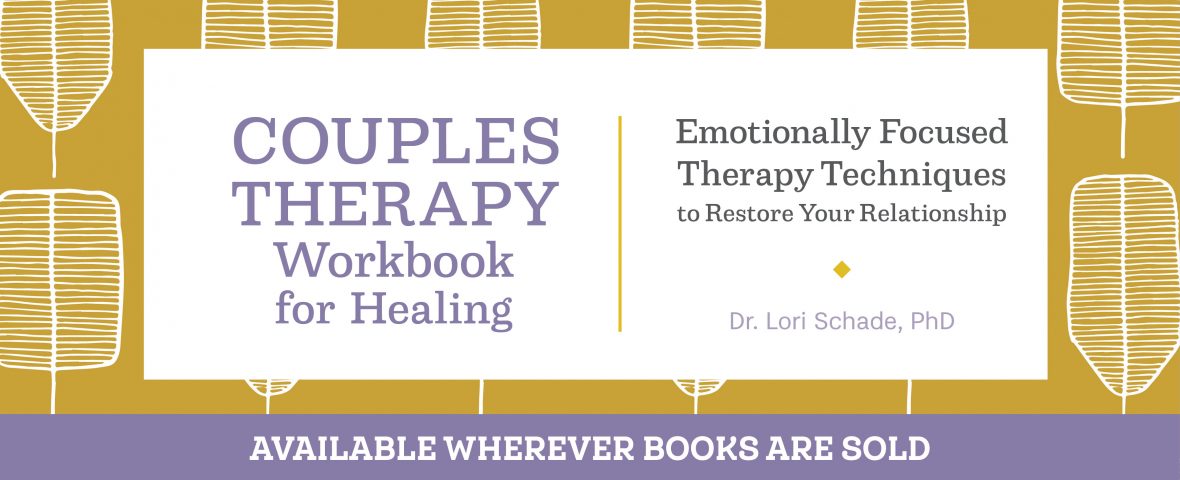 Anyone who has read my blog for any length of time will know that I am continually harping on boundaries as an important construct for marital stability. In the current digital social climate, if there are any natural boundaries at all to prevent infidelity in a marriage, they are so diffuse and easily crossed that their existence is barely recognizable.
Anyone who has read my blog for any length of time will know that I am continually harping on boundaries as an important construct for marital stability. In the current digital social climate, if there are any natural boundaries at all to prevent infidelity in a marriage, they are so diffuse and easily crossed that their existence is barely recognizable.
Micro-cheating is a relatively new relationship buzzword alluding to small behaviors that both approach and potentiate infidelity.
Common micro-cheating behaviors include contacting exes, sexting, complaining about your marriage to others, secretly maintaining contact with anyone behind your spouse’s back, and any level of flirting; but there are limitless ways to micro-cheat, because it has more to do with both a state of mind and deception than anything else.
In my clinical practice, more couples than ever are arguing about partners’ decisions for interacting with extra-marital acquaintances who feel threatening. In addition to traditional face-to-face flirtatious behaviors, a whole new threat exists in digital flirting, such as email, texting, Facebook messaging, Instagram likes, online games, and any other mechanism for messaging someone in a forum closed to the other spouse. It’s not uncommon for me to be moderating a power struggle between couples arguing about whether or not a spouse’s actions are considered micro-cheating or harmless contact. Some people are fighting for their right to autonomous decision-making, but that path can lead to unintended harmful consequences.
I believe the most dangerous aspect of micro-cheating is that people rarely recognize the very real threat to relationship stability, so they aren’t careful. While I recognize that there are exceptions, I have never heard an affair client state that they went looking for an affair. Instead, I hear things like, “I never planned to be unfaithful,” or “It just happened,” or “I just fell into it,” or “I can’t believe I’m in this situation,” or many other phrases describing a feeling of being helplessly pulled into the nightmarish drama.
The problem with crossing boundaries is that you’re safe until you’re not.
Duh, right? But what I mean by that is that in every situation, two people are exchanging playful and flirtatious messages because it’s intoxicating to get positive affirmation from another person, and they mistakenly believe that they are safe from infidelity. Most people tell themselves, “I’m not the type to have an affair so it won’t happen,” or they underestimate the emotional bonding resulting from repeated contact. Eventually, there is a predictable “tipping point.” Malcolm Gladwell, in his same titled book, describes this as overall effect when an accumulation of minor phenomena reach a critical point to create a major change.
Micro-cheating behaviors can eventually cause a tipping point. In almost every situation, couples shift from playful banter into deeper emotional connection seemingly instantly and surprisingly, when it is actually the predictable result of eventual connection from micro-cheating.
Extra-marital emotional connection has a real-life impact on disrupting marital connection. Two people can have a virtual affair without ever being in the same physical location. The feelings experienced in emotional affairs are real, and commonly starve a marriage. People in emotional affairs usually decrease their attention and effort toward their spouses, and the result is unhappiness and possible marital dissolution.
Remember, while there are a myriad of behaviors that can be labeled as micro-cheating, the concept has more to do with attitudes than behavior. Can you safely like someone’s Instagram post or make a comment and not be flirting? Of course! Can you email, text or otherwise message someone platonically without compromising your marriage? Out of practicality, yes. However, micro-cheating is ultimately the biggest problem when it is hidden or minimized.
When you have to hide your passwords from your spouse, there’s a bigger risk for micro-cheating.
When your spouse is feeling threatened by your extra-marital interactions, and you continue those interactions, you are very likely micro-cheating.
Ultimately, the most effective boundaries in marriage are built by creating safe emotional and physical connection within the marriage. As much as marriage experts affirm that this takes effort, I am continually surprised by the general apathy many people have toward their spouses. Without effort and energy, marriages drift. Distance leaves marriages more vulnerable to infidelity.
I loved “falling in love,” as much as the next person. The heightened motivational state, fueled by novelty and the “love cocktail,” of brain chemicals is euphoric. However, I have difficulty with the word “falling,” because it implies an absence of power to influence our own feelings of being in love.
When people report “falling out of love,” I respect their experiences and don’t dispute their perceptions. However, I also know that staying in love is an active endeavor. I always wanted a good marriage. I have also consistently focused on my spouse by promoting time together and adjusting my own desires and needs to fit his desires and needs. I admit that I have a spouse who is easy to love, and I’ve seen many individuals I cannot imagine spending a life with, but I am also committed to “staying in love,” which requires focus, practice, repetition, conflict resolution, forgiveness, repair, and commitment. I’m going to love my spouse because I said I would. As long as he is respectful and loving in return, “falling out of love,” is not an option.
Ultimately, if you don’t want to “fall out of love,” with your partner, evaluating and curbing your own micro-cheating is a good place to start.
Reference: The Tipping Point: How Little Things Can Make a Big Difference by Malcolm Gladwell (2000), Little, Brown.


 Any time I am helping a couple rebuild after a betrayal, I’m reminded of how alike couples are in the healing process, with predictable hiccups along the way. Here’s a typical example:
Any time I am helping a couple rebuild after a betrayal, I’m reminded of how alike couples are in the healing process, with predictable hiccups along the way. Here’s a typical example: Tears. Lots of them. “I am just so tired of hurting. I want the pain to go away.” As usual, my heart was breaking for the spouse sitting across from me who had recently discovered that her partner had an extramarital affair. Like many spouses before, she declared, “Of all the things I thought I knew in the world, I was certain that my spouse would never in a million years be unfaithful and now I don’t know which way is up. I can’t count on anything anymore. All my safety is just completely washed away.” “I am so sorry that this is so painful,” I offered, “I wish I could make that better for you—I really do, but the truth is that it is going to hurt for a long time. Eventually, it won’t hurt as much, but when I say eventually, I mean that a year is short in affair healing time.” Even though I’ve been doing therapy for a long time, the emotions still impact me.
Tears. Lots of them. “I am just so tired of hurting. I want the pain to go away.” As usual, my heart was breaking for the spouse sitting across from me who had recently discovered that her partner had an extramarital affair. Like many spouses before, she declared, “Of all the things I thought I knew in the world, I was certain that my spouse would never in a million years be unfaithful and now I don’t know which way is up. I can’t count on anything anymore. All my safety is just completely washed away.” “I am so sorry that this is so painful,” I offered, “I wish I could make that better for you—I really do, but the truth is that it is going to hurt for a long time. Eventually, it won’t hurt as much, but when I say eventually, I mean that a year is short in affair healing time.” Even though I’ve been doing therapy for a long time, the emotions still impact me. “Here’s the thing,” I was explaining to one of the spouses that had recently come in for marriage therapy, “Your actions in here are very much like someone who is having an extramarital affair; I’m not just talking about physical or sexual contact—emotional affairs where you actually never see the person can be just as powerful. I’m only going to ask you one time—are you at all involved with another person who is competing with your spouse for your affection and attention? You can lie to me, and I’ll have no choice but to play along, but I can promise you that if you are involved in an affair, marriage therapy will not help you and you might as well go burn your money in the parking lot.”
“Here’s the thing,” I was explaining to one of the spouses that had recently come in for marriage therapy, “Your actions in here are very much like someone who is having an extramarital affair; I’m not just talking about physical or sexual contact—emotional affairs where you actually never see the person can be just as powerful. I’m only going to ask you one time—are you at all involved with another person who is competing with your spouse for your affection and attention? You can lie to me, and I’ll have no choice but to play along, but I can promise you that if you are involved in an affair, marriage therapy will not help you and you might as well go burn your money in the parking lot.” *While this article is focused on Facebook use, because it’s such a popular medium for online connection, this really applies to any connection, technology-assisted or otherwise.
*While this article is focused on Facebook use, because it’s such a popular medium for online connection, this really applies to any connection, technology-assisted or otherwise. **Side note—When I read the title to my husband, he said, “Do you really have to explain that? Isn’t it obvious?” The answer is that I don’t think it’s obvious enough, because men get socialized so differently than women. As much as they try, I think they have a hard time understanding the pain of felt betrayal and rejection that can be associated with pornography. Too often it is minimized.
**Side note—When I read the title to my husband, he said, “Do you really have to explain that? Isn’t it obvious?” The answer is that I don’t think it’s obvious enough, because men get socialized so differently than women. As much as they try, I think they have a hard time understanding the pain of felt betrayal and rejection that can be associated with pornography. Too often it is minimized. I am probably going to ruffle some feathers with this post, and I may not even sound very compassionate, but I have had a somewhat upsetting month from a therapy standpoint. That’s saying a lot, considering the emotional challenges I face with people on a daily basis. I feel a responsibility to address this topic.
I am probably going to ruffle some feathers with this post, and I may not even sound very compassionate, but I have had a somewhat upsetting month from a therapy standpoint. That’s saying a lot, considering the emotional challenges I face with people on a daily basis. I feel a responsibility to address this topic.

